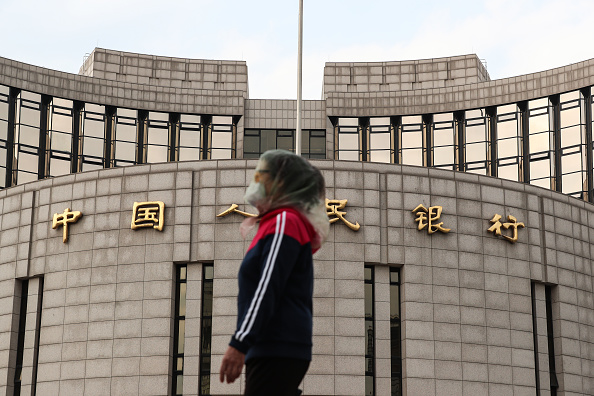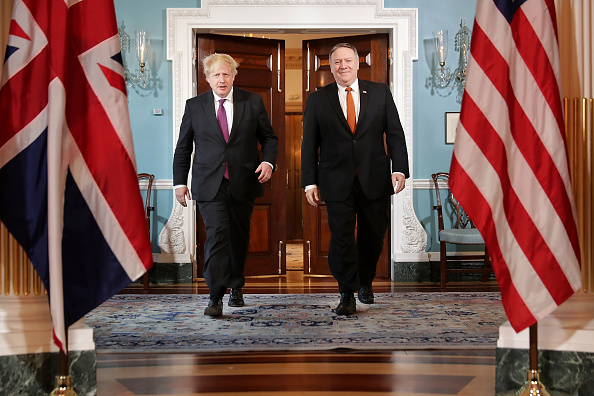
 Fits and Starts
Fits and StartsChina is slowly yet fitfully bouncing back from the COVID-19 crisis. The country's manufacturing sector faces its worst decline in over 4 years, while exports in May dropped 3.3% compared to 2019, cancelling out the 3.5% gains from April. For the first time in decades, China has not set its annual economic growth rate, signaling both how hard the economy was impacted by the pandemic and the ongoing uncertainty of what lies ahead. At least a 2% growth in GDP is needed in order to steady "employment, finance, foreign trade, foreign investment, investment and [business] expectations," according to Zhu Min, head of the National Institute of Financial Research at Tsinghua University. For more on China's GDP prospects, read, "Projections of Possible Levels of Chinese GDP in 2020" from Laurewnce Lau, Kwoh-Ting Li Professor in Economic Development, Emeritus, at Stanford University.
China's jobless numbers provide a limited picture into the health of the economy. Although the country has reported little official change in its unemployment rate since January, independent experts in China believe that as many as 80 million people have lost their jobs due to the coronavirus. With job losses in urban areas, many workers have returned to their rural hometowns. The migration may boost the country's agricultural sector, but could also stall President Xi Jinping's signature goal of eradicating poverty by 2020.
China currently reports that 5.5 million people living in rural areas are under the poverty line, although China's poverty line is defined by an annual income below $324, versus the World Bank's definition of $694 a year. Last month, Premier Li Keqiang said that two-fifths of Chinese citizens still live on less than $140 a month, underscoring the efforts needed for China to end poverty in the country. "China has set such a high threshold for poverty that it ends up downplaying the problem," said Wang Jun, an analyst at the China Center for International Economic Exchange.
 An Attempt to Isolate
An Attempt to IsolateTensions are building across the Pacific and beyond, as countries seem to be hardening their stance towards China. U.S. Secretary of State Mike Pompeo accused China of "bullying tactics" this Tuesday and indicated a push for the United Kingdom to take sides in the increasingly hostile geopolitical spat between China and the United States. China is under heightened international pressure over its handling of the coronavirus outbreak, and for its push for a Hong Kong security law. The U.S. wants the UK to reset its relations and splinter its economic ties with China.
Following the postponing of the G-7, British Prime Minister Boris Johnson is considering forming the D-10, a new gathering of ten of the world's top democracies - the current G-7 members plus India, Australia, and South Korea. The move would allow greater cooperation among the democratic countries on issues such as 5G mobile communications and vulnerable supply chains, and would reduce the participants' reliance on China.
Fallout over the issue of Hong Kong's national security law continues. HSBC announced support for such a law, which has drawn international consternation. Secretary Pompeo described the move as a "corporate kowtow," while UK Foreign Secretary Dominic Raab called on China to drop the new legislation, an indication of the country's hardening stance towards China. Raab called it a "clear violation of China's international obligations, including those made under the Sino-British Joint Declaration.
 The Technology Race
The Technology RaceTechnological competition continues to be a motif in the US-China relationship. United States lawmakers are considering investing tens of billions of dollars in America's semiconductor industry over the next decade - a rare bipartisan move to boost the industry's competitiveness. China has meanwhile launched a new trillion-dollar campaign to develop next-generation technologies in artificial intelligence, data centers, mobile communications and other projects.
China criticized the U.S. for undermining the global tech industry's supply chains, after a renewed executive order barred U.S. companies from using telecoms equipment made by firms deemed to pose a national security risk.
In further tech-business news, Zoom came under fire after it was reported that a Chinese activist's account was shut down after hosting an event observing the anniversary of Tiananmen Square. Apple also removed two podcasts apps in China this week, alleging that they broke the country's speech laws. The move prompted criticism that Apple is too accommodating to the Chinese government. In October, Apple removed an app in Hong Kong that helped protestors locate the whereabouts of other protesting groups, a move that was both applauded and criticized from different groups.
Prepared by China-US Focus editorial teams in Hong Kong and New York, this weekly newsletter offers you snap shots of latest trends and developments emerging from China every week, while adding a dose of historical perspective.
- 2020-06-06 Confluence of Crises
- 2020-05-29 Questions of Autonomy
- 2020-05-22 Pandemic Decisions
- 2020-05-16 Fractures and Fault Lines
- 2020-05-09 Attacks and Counterattacks
- 2020-05-02 Retaliatory Actions
- 2020-04-24 Sinking Perceptions
- 2020-04-18 Pandemic World
- 2020-04-11 The Long Road Back to Normalcy
- 2020-04-03 Shifting Gears
- 2020-03-28 Cooperation or Confrontation
- 2020-03-20 World in Turmoil
- 2020-03-13 Global Emergency
- 2020-03-06 Global Strains
- 2020-02-28 Coronavirus Gone Global
- 2020-02-22 The Virus Continues
- 2020-02-15 Asserting Control
- 2020-02-08 A Novel Outbreak
- 2020-01-31 Global Health Emergency Declared
- 2020-01-24 Celebrations Grounded
